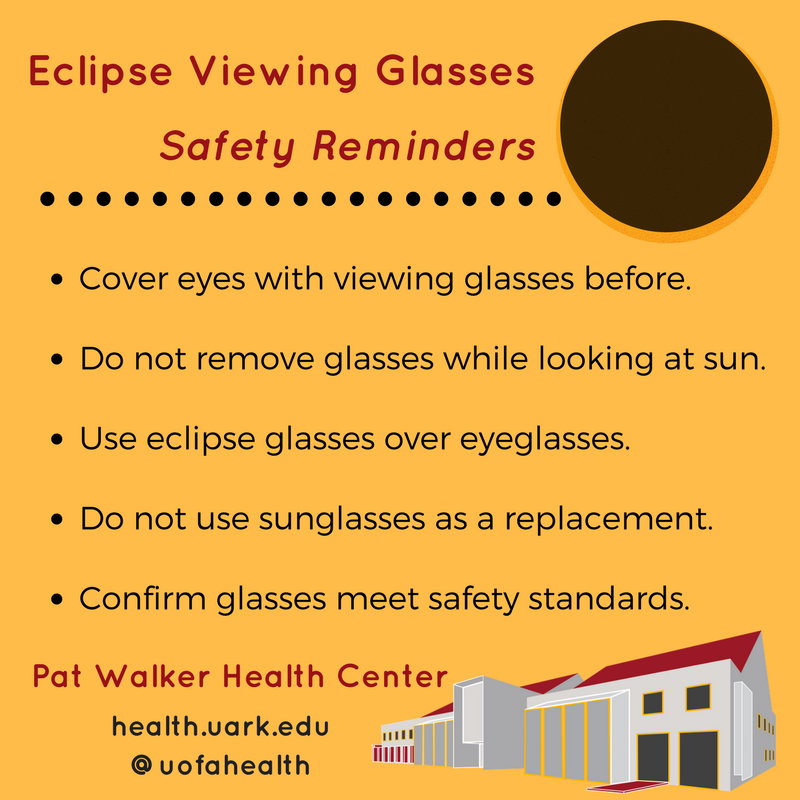
On Monday, Aug. 21, a near-total eclipse of the sun will occur across campus and most of the country.
To celebrate this rare and remarkable astrological event, the Associated Student Government will hold a free cookout from 11 a.m. to 2 p.m. on the Union Mall.
Because safety is a big concern during a solar eclipse, free glasses specially designed for viewing the eclipse will be given out, courtesy of the Pat Walker Health Center and Mertins Eye and Optical.
Members from the health center and Mertins will begin handing out safety viewing glasses at 11 a.m. at the Union Mall.
"We are pleased to partner with Mertins Eye and Optical to provide our campus community an opportunity to safely view this rare and remarkable event," said Mary Alice Serafini, associate vice chancellor for Student Affairs and executive director of the health center. "We want to emphasize that viewing a partial eclipse without eye protection can damage the retina so safety practices are of the highest priority."
The moon will begin to cover the sun over Fayetteville at 11:43 a.m., reaching 90.6 percent coverage at 1:13 p.m. The near-total eclipse will only last about two minutes, but the moon will continue to cover part of the sun until 2:41 p.m.
Safety Tips for Viewing the Eclipse
- Stand still and cover your eyes with your eclipse glasses or solar viewer before looking up at the sun. After looking at the sun, turn away and remove your filter — do not remove it while looking at the sun.
- Do not look at the uneclipsed or partially eclipsed sun through an unfiltered camera, telescope, binoculars, or other optical device.
- Do not look at the sun through a camera, a telescope, binoculars, or any other optical device while using your eclipse glasses or hand-held solar viewer — the concentrated solar rays will damage the filter and enter your eye(s), causing serious injury.
- If you normally wear eyeglasses, put your eclipse glasses on over them, or hold your handheld viewer in front of them.
- Ordinary sunglasses should not be used as a replacement for eclipse viewing glasses or handheld solar viewers.
- It is recommended to double check the safety authenticity of your eclipse viewing glasses to ensure they meet the proper safety standards.
Want to learn more about the eclipse? Astronomy faculty and students have set up a Research Guide packed with information!
Contacts
Zac Brown, assistant director of communications
Pat Walker Health Center
479-575-4649,